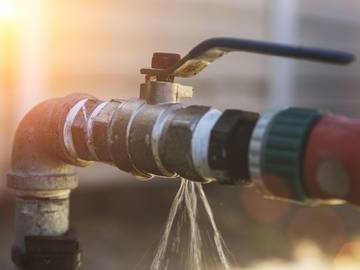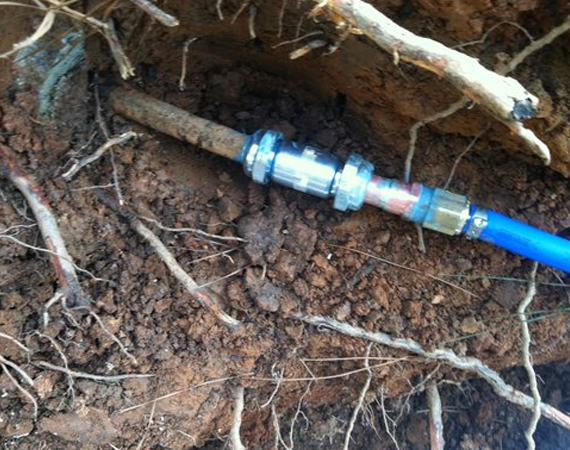The 5 Frequent Water Leak Sources
The 5 Frequent Water Leak Sources
Blog Article
Are you trying to locate insight on Reasons for Water Heater Leaks?

"Beware of little costs. A small leakage will sink a wonderful ship." - Benjamin Franklin.
He couldn't have been much more right because water leakages in our houses result in a waste of sources, boosting our water expenses. This rise could seem minimal at first, it can lead to substantial costs that can damage your financial institution. In addition to a rise in bills, water leakages also trigger undesirable natural growth, structural damages, and also even electrical dangers.
If you have a water leak isn't always simple due to being not able to see most of the pipework in your house, figuring out. If you have had a boost in your water expenses lately, saw water discolorations on wall surfaces and ceilings, scented poor smell, and so on. You might intend to consider asking for plumbing services to get it looked into.
There are a number of sources of water leakages, as well as we have assembled the typical reasons listed below. Check to see if you have actually had relevant issues in your house just recently.
Obstructed drains
Food particles, dirt, and grease can create stopped up drains pipes and block the passage of water in and out of your sink. Boosted stress within the rain gutters can trigger an overflow as well as end up cracking or breaking pipelines if undealt with. To prevent clogged up drains pipes in your house, we advise you to stay clear of putting particles down the tubes and also regular cleaning of sinks.
High water stress
You observed your residence water stress is higher than normal but after that, why should you care? It's out of your control.
It would certainly be best if you cared because your average water stress need to be 60 Psi (per square inch) and also although your residence's plumbing system is made to endure 80 Psi. A rise in water stress can place a stress on your residence pipes and result in splits, or worse, burst pipelines. Get in touch with a specialist about controling it if you ever before notice that your house water stress is greater than common.
Corrosion
As your pipework ages, it gets weaker and also extra susceptible to rust after the constant flow of water with them, which can gnaw at pipes and cause splits. A noticeable indication of corrosion in your house plumbing system is staining and also although this could be tough to find as a result of most pipelines hidden away. Once they are old to ensure a sound plumbing system, we suggest doing a regular checkup every couple of years and transform pipes
Weakened pipeline joints
Pipe joints are the parts of our plumbing system where the pipelines connect. They are the weakest factor of our plumbing system. Consequently, they are more prone to wear and tear. It is important to keep in mind that even though pipelines are made to stand up to stress and also last for a while, they weren't developed to last permanently; as a result, they would certainly deteriorate over time. This damage could cause cracks in plumbing systems. A common sign of harmed pipeline joints is extreme sound from faucets.
Busted seals
Another root cause of water leakages in homes is damaged seals of residence devices that use water, e.g., a dishwashing machine. When such devices are installed, seals are set up around water ports for very easy passage of water through the device. A damaged seal can trigger leak of water when in usage.
With little or no understanding of plumbing, recognizing your house's plumbing system sufficient to take care of a few of these issues (without effect) can be a headache. Connect with plumbing experts in Pittsburgh, Providence, Rochester, as well as environ today, as well as they'll make those concerns vanish.
He could not have been a lot more ideal since water leaks in our homes result in a waste of resources, boosting our water bills. If you have had a rise in your water expenses recently, discovered water spots on wall surfaces and ceilings, smelt poor smell, and so on. A rise in water stress can place a strain on your home pipes and lead to cracks, or worse, ruptured pipelines. One more reason of water leaks in homes is damaged seals of residence devices that make use of water, e.g., a dishwashing machine. When such devices are installed, seals are mounted around water adapters for simple passage of water via the equipment.
5 TIPS IN DETECTING A WATER LEAK IN YOUR HOUSE
Water leaks can be hard to find in your home, yet they can be so common. We rely on water every day in our home, which is why a leak can cause big problems. By detecting them early, you can save money and further damage, getting the problem fixed as soon as possible. Here are 5 tips to help you detect a water leak in your home, so you can contact a plumber straight away and get the issue sorted.
Check your water meter
Many people underestimate the value of the water meter in their home. It can be one of the best ways to tell if you have a leak early on, so you can get on top of it before issues start arising. Start by turning off all the water in your home: taps, washing machine, dishwasher, etc. Now take a look at the meter – if it’s still changing with everything turned off, it’s likely you have a fast-flowing leak that you need to get on top of straight away. If nothing changes, then leave your meter for an hour or two and come back to it. Did it change in this time? It’s likely you have a slower leak, which isn’t as urgent but still handy to get fixed so it doesn’t become a bigger problem.
Keep an eye on your bill
Another good way to detect a leak in your home is by keeping an eye on your water bill. It helps if you have a past bill from the same period of time. You can compare like for like and determine whether your water usage has increased significantly. If it has, there may be a leak in your system that you haven’t picked up before. A professional plumber can check through all of your pipes and determine where it is coming from.
Look for damage
If you have a leak inside your home, you will notice damage over time. Take a look at your showers and bathtubs and note whether any of the tiles surrounding the area seem to be discoloured or damaged in any way. There may be water stains, mould or peeling material that has resulted from a build up of moisture over time. Make sure you take a look under sinks at the back of cupboards that don’t get accessed regularly. This is where damage can go unnoticed and build up over periods of time.

We hope you enjoyed reading our article on Where to Find Water Leaks. Thanks a lot for finding the time Where to Find Water Leaks post. So long as you appreciated our blog post plz remember to share it. Many thanks for taking the time to read it.
Best in town? Dial. Report this page